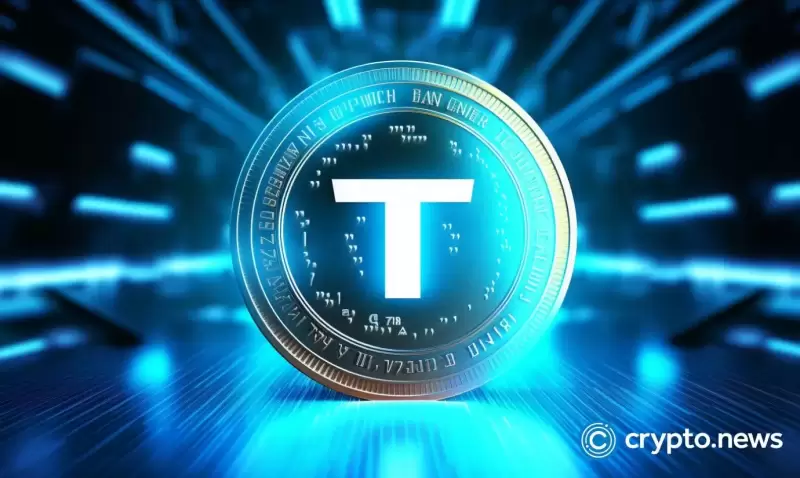 |
|
 |
|
 |
|
 |
|
 |
|
 |
|
 |
|
 |
|
 |
|
 |
|
 |
|
 |
|
 |
|
 |
|
 |
|
Cryptocurrency News Articles
SNB Rejects Bitcoin, Choosing Stability Over Disruption
Apr 26, 2025 at 09:05 pm
While cryptocurrencies are disrupting the global monetary order and pushing states and central banks to rethink their strategies, Switzerland chooses the path of caution.

As cryptocurrencies continue to disrupt the global monetary order and push states and central banks to adapt their strategies, Switzerland appears to be preferring caution.
The Swiss National Bank (SNB), tasked with safeguarding the country’s economic stability, has decisively rejected the possibility of integrating bitcoin into its reserves. This clear stance comes as a citizen initiative is attempting to force the adoption of crypto at the highest institutional level.
During the annual general meeting held in Bern on Friday, April 25, 2025, Martin Schlegel, President of the Swiss National Bank (SNB), firmly rejected the idea of including bitcoin among reserve assets.
Addressing shareholders, Schlegel stated, “Crypto currently cannot fulfill the requirements for our monetary reserves.”
He explained that SNB assets must meet strict criteria, including high market liquidity and value stability—qualities which, in the president’s view, bitcoin does not yet possess in its current stage of development.
Adherence to these criteria ensures the rapid availability of the bank’s resources, crucial for market interventions or supporting the Swiss franc during periods of volatility.
Specifically, the SNB identifies several weaknesses that exclude bitcoin from its reserve options:
* Limited liquidity: Despite the growing market cap of cryptocurrencies, Schlegel believes they still lack sufficient market depth for central bank-scale operations.
* ̂Price volatility: Though reduced from the wild swings of previous years, bitcoin’s price remains more volatile than other reserve assets, posing problems for balanced portfolio management over the long term.
* ̂Legal and regulatory uncertainties: The cryptocurrency sector is still evolving rapidly, with new regulations and legal frameworks being introduced regularly. This dynamism, while a sign of innovation, also creates an instability that does not suit the Swiss National Bank’s risk calculus.
By maintaining this policy, the Swiss central bank is prioritizing the stability and resilience of the national financial system, even as new global economic dynamics come into play.
However, a different vision is being pushed by a citizen initiative, aiming to shake the legal foundations of national reserve management. Led by Luzius Meisser, an entrepreneur and ardent bitcoin supporter, a movement is gathering to oblige the Swiss National Bank to diversify its assets by integrating bitcoin alongside gold.
According to Meisser, “bitcoin represents a special asset in a multipolar world where trust in public debts is gradually collapsing.”
This initiative intends to organize a national referendum to amend the Constitution, thus giving a political dimension to this economic debate. The Swiss legislative process, based on direct democracy, allows citizens to propose such constitutional amendments, provided they gather a sufficient number of signatures.
If the initiative manages to reach this threshold with signatures from at least 100,000 voters, it will then be submitted to a national vote, which could compel the SNB to review its asset management principles.
This prospect raises questions about a central bank’s ability to maintain its neutrality and operational flexibility while responding to specific popular demands.
If the bitcoin campaign managed to mobilize a significant portion of the Swiss population, it could create an unprecedented precedent in the history of modern central banks. However, even in case of success, the road would be long before effective implementation, considering the necessary legal, regulatory, and technical adjustments.
In a world where trust in traditional currencies is visibly waning, the debate around bitcoin in sovereign reserves could mark a fundamental evolution of central banks’ role vis-à-vis cryptocurrencies.
Disclaimer:info@kdj.com
The information provided is not trading advice. kdj.com does not assume any responsibility for any investments made based on the information provided in this article. Cryptocurrencies are highly volatile and it is highly recommended that you invest with caution after thorough research!
If you believe that the content used on this website infringes your copyright, please contact us immediately (info@kdj.com) and we will delete it promptly.


























































